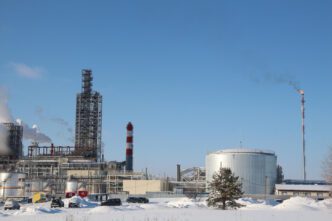Executive Summary
The Story So Far
Why This Matters
Who Thinks What?
Hungary has openly rejected President Trump’s demand for NATO allies to cease purchasing Russian oil, highlighting a growing schism within the Western alliance regarding the extent of solidarity against Moscow. On September 23, Hungarian Foreign Minister Péter Szijjártó dismissed the call as impractical, asserting that Budapest would continue its reliance on Russian energy supplies to sustain its economy.
Hungary’s Energy Reliance and Political Stance
Szijjártó’s statement, labeling Western European officials as “fanatics,” underscores Hungary’s readiness to challenge both EU norms and NATO pressure. This refusal not only exposes Hungary’s continued dependence on Russian energy but also a broader vulnerability in the West’s united front against Moscow.
Hungary’s position is rooted in its historical infrastructure, specifically the Druzhba pipeline, which has supplied Russian crude oil since Soviet times. Its refineries are designed for Russian blends, and the country lacks the necessary infrastructure for alternative sources like Middle Eastern imports or liquefied natural gas in the short to medium term.
For Prime Minister Viktor Orbán’s government, severing Russian supply would be politically untenable, as it has consistently presented itself as the protector of ordinary Hungarians against external interference. Orbán’s ministers contend that proposals for new energy routes are “dreams” rather than viable alternatives.
Historical Choices and Ideological Alignment
Critics argue that Hungary’s energy vulnerability is a consequence of deliberate policy choices. Unlike other Eastern European nations that diversified their energy sources after Russia’s annexation of Crimea in 2014, Hungary deepened its ties with Moscow, including securing new nuclear power projects from Rosatom.
Despite ideological alignment with President Trump, Orbán’s refusal reveals the limits of political camaraderie when national energy security is at stake. Orbán, who champions “sovereign conservatism” against Brussels and liberal elites, found a kindred spirit in Trump, but energy realities superseded shared political views.
Orbán’s rhetoric is also strategically aimed at his domestic audience. By portraying Western demands as unreasonable, he reinforces his image as a defender of Hungarian independence, appealing to an electorate more concerned with stable fuel prices than NATO strategy.
EU and NATO’s Dilemma
The European Union faces a significant challenge, as Hungary has repeatedly obstructed or diluted sanctions against Russia. Brussels is now exploring methods to bypass the unanimity rule on trade restrictions, potentially cutting pipeline supplies without Hungary’s consent, which would be legally and politically complex.
Such actions could set a precedent, potentially leading Hungary to frame it as an attack on national sovereignty and further fueling Orbán’s eurosceptic narrative. Other EU member states, particularly in Eastern Europe, have expressed growing impatience, with Poland openly urging Hungary to cut ties with Russian oil.
For NATO, President Trump’s demand was both symbolic and substantive. Hungary’s refusal to cut Russian oil weakens the alliance’s message of resolve against the Kremlin, providing Moscow with a propaganda victory and exposing internal divisions that Russia can exploit.
Consequences and Future Outlook
Every barrel of Russian oil purchased by Hungary, critics contend, contributes revenue to Moscow’s military efforts in Ukraine. President Trump’s insistence aimed to project firmness and ensure Europe shared the burden of confronting Russia, but NATO lacks direct mechanisms to enforce such demands.
Budapest appears confident it can withstand the pressure, viewing the costs of continued Russian imports as less severe than the domestic upheaval that would result from cutting supplies. Orbán is betting that Brussels and Washington will stop short of drastic reprisals, despite potential reputational damage or diplomatic isolation.
However, this calculation carries risks. Should the EU override Hungary, Budapest could face higher energy costs without the diplomatic benefit of compliance and potentially lose leverage in negotiations over frozen EU funds. Hungary’s continued isolation could also deepen, raising questions about its commitment to Western security.
Hungary’s defiance highlights a fundamental flaw in Western strategy: sanctions are only as strong as their weakest link. This reality emboldens Moscow and underscores the difficulties of energy transition, where existing infrastructure and contracts resist swift political changes. The episode also illustrates how domestic politics can clash with international alliances, with Orbán leveraging defiance as a political asset.
A Litmus Test for Western Cohesion
Hungary’s refusal to comply with President Trump’s demand to halt Russian oil purchases transcends a simple energy dispute. It serves as a critical test for the cohesion of NATO and the European Union, exposing the limitations of American influence, the fragility of European unity, and the enduring presence of Russian leverage within Europe.
For Orbán, the priority is clear: energy security and domestic political advantage outweigh international diplomatic pressure. For the West, the imperative is equally stark: finding effective ways to address such internal divergences is crucial to prevent its strategy against Russia from being undermined from within.








